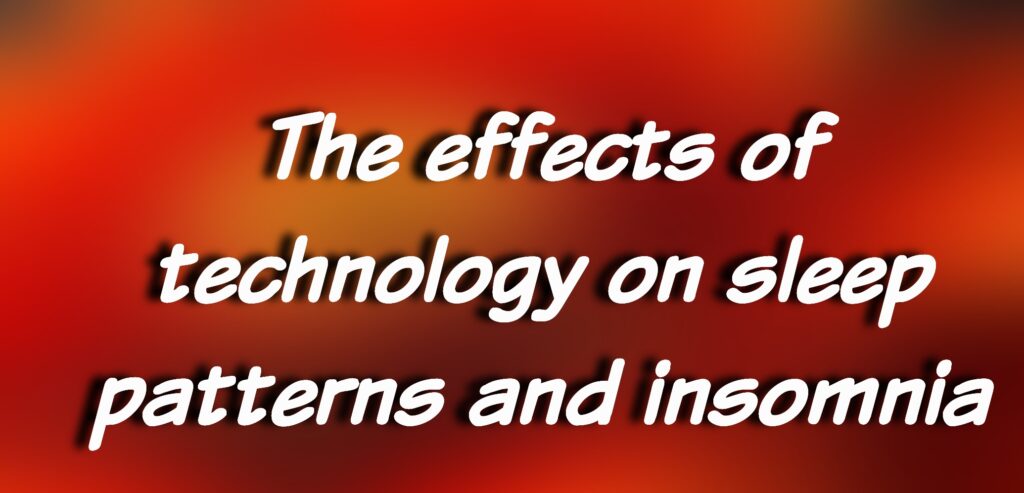Technology has had a significant impact or effects on sleep patterns and insomnia. The use of electronic devices such as smartphones, laptops, and televisions emit blue light that can suppress the production of the sleep hormone melatonin, making it difficult for people to fall asleep and stay asleep.
The constant stimulation from social media, email, and messaging can also make it challenging to relax and wind down before bed. Additionally, the bright screens of electronic devices can interfere with circadian rhythms and disrupt the sleep-wake cycle. To mitigate these effects, it’s recommended to avoid using technology at least an hour before bedtime, turn off notifications and minimize screen brightness, or use blue light filtering software.
The blue light emitted by electronic devices such as smartphones, laptops, and televisions has been shown to have a negative effect on sleep. Blue light tricks the brain into thinking it’s daytime, suppressing the production of melatonin, the sleep hormone that helps regulate the sleep-wake cycle. As a result, people who use these devices before bedtime may have difficulty falling asleep or may experience insomnia.
Moreover, the constant stimulation from social media, email, and messaging can make it challenging to relax and wind down before bedtime, leading to a heightened state of alertness and preventing sleep onset.
The bright screens of electronic devices can also interfere with the circadian rhythm, the internal biological clock that regulates the sleep-wake cycle, by suppressing melatonin production and delaying the sleep onset.
To mitigate these effects, it’s recommended to avoid using technology at least an hour before bedtime, turn off notifications and minimize screen brightness, or use blue light filtering software that reduces the amount of blue light emitted by electronic devices.
Additionally, creating a sleep-conducive environment such as a dark, quiet, and cool room can help promote better sleep and reduce the negative impact of technology on sleep patterns and insomnia.
Also read:Top homoeopathic mother tinctures for insomnia
tips to avoid effects of technology on sleep patterns and insomnia
Here are some tips to help reduce the impact of technology on sleep patterns and insomnia:
- Establish a digital bedtime: Avoid using electronic devices for at least an hour before bedtime.
- Reduce screen brightness: Turn down the brightness of your screens or use blue light filtering software.
- Turn off notifications: Silence notifications from social media, email, and messaging apps to minimize stimulation before bedtime.
- Create a sleep-conducive environment: Make your bedroom quiet, dark, and cool to promote better sleep.
- Use a traditional alarm clock: Avoid using your phone as an alarm clock, as the blue light and stimulation can interfere with sleep.
- Avoid screens in bed: Don’t use electronic devices in bed, as this can become associated with wakefulness and hinder sleep onset.
- Practice good sleep hygiene: Establish a relaxing bedtime routine, avoid caffeine and alcohol before bed, and exercise regularly to promote better sleep.
- Seek professional help: If you are having persistent sleep problems, consult a doctor or sleep specialist who can help diagnose and treat any underlying sleep disorders.

